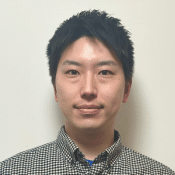Researcher Spotlight: Kazuya Fukasawa, PhD
memorial sloan kettering cancer center
Condon Family Fellow

The introduction of bispecific antibodies represents a promising therapeutic advancement in the treatment of lymphoma. These therapies work by redirecting T-cells to interact with tumor cells, supporting more potent anti-lymphoma activity from the immune system. In some cases, patients will become resistant to bispecific antibodies, but the mechanisms that drive this resistance remain poorly understood, which could limit their longterm use. “My research aims to define the mechanisms driving resistance to CD20-CD3 bispecific antibodies in follicular lymphoma (FL),” explains Dr. Fukasawa. “By identifying key genetic and cellular determinants of resistance, I seek to develop novel therapeutic strategies to overcome treatment escape. Ultimately, my goal is to improve patient outcomes by advancing more durable and effective immunotherapeutic approaches for FL.”
Dr. Fukasawa’s interest in cancer research began during his time as a master’s student at Kanazawa University in Japan. Since then, his research has focused on understanding the mechanisms of cancer pathophysiology and the interactions between the tumor and the host that drive progression. “With the rise of cancer immunotherapy, I developed a strong interest in FL and its immune microenvironment during my postdoctoral training at Memorial Sloan Kettering Cancer Center,” he says. “My current research focuses on unraveling mechanisms of resistance to immunotherapy, with the ultimate goal of translating these findings into clinical applications to improve patient outcomes.”
As a Postdoctoral Fellow, Dr. Fukasawa hopes to build his research expertise to better understand the interaction between the immune system and lymphoma, with the goal of developing novel strategies to overcome treatment resistance and improve patient outcomes. “My long-term goal is to bridge basic research with clinical applications, helping guide more personalized and effective treatments for lymphoma patients,” he explains.
